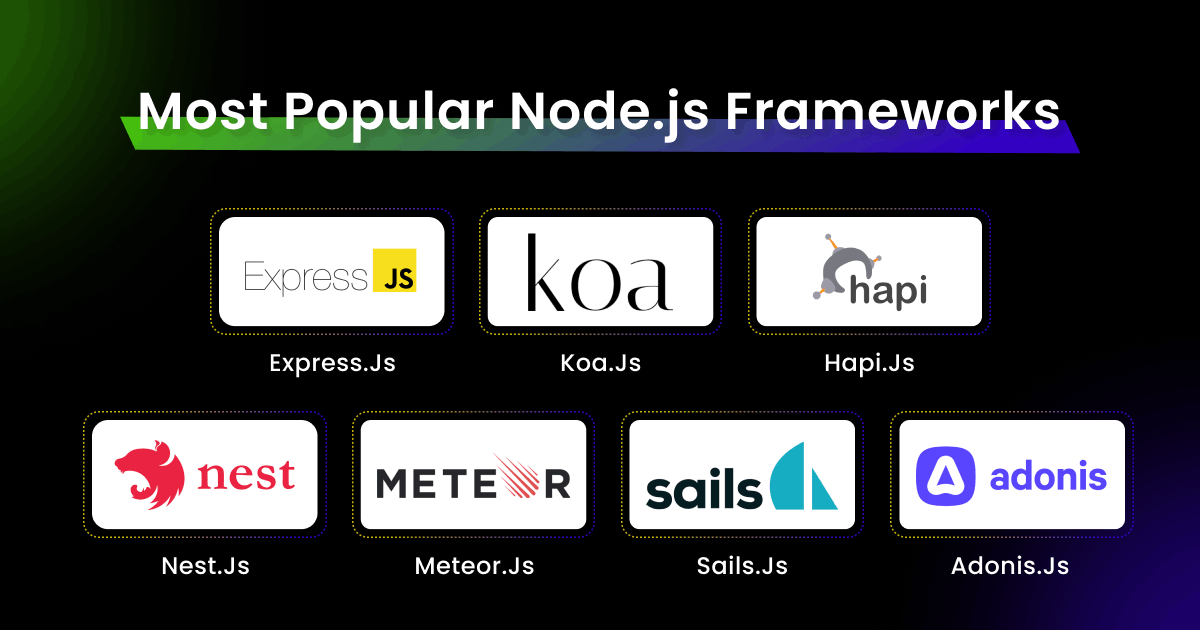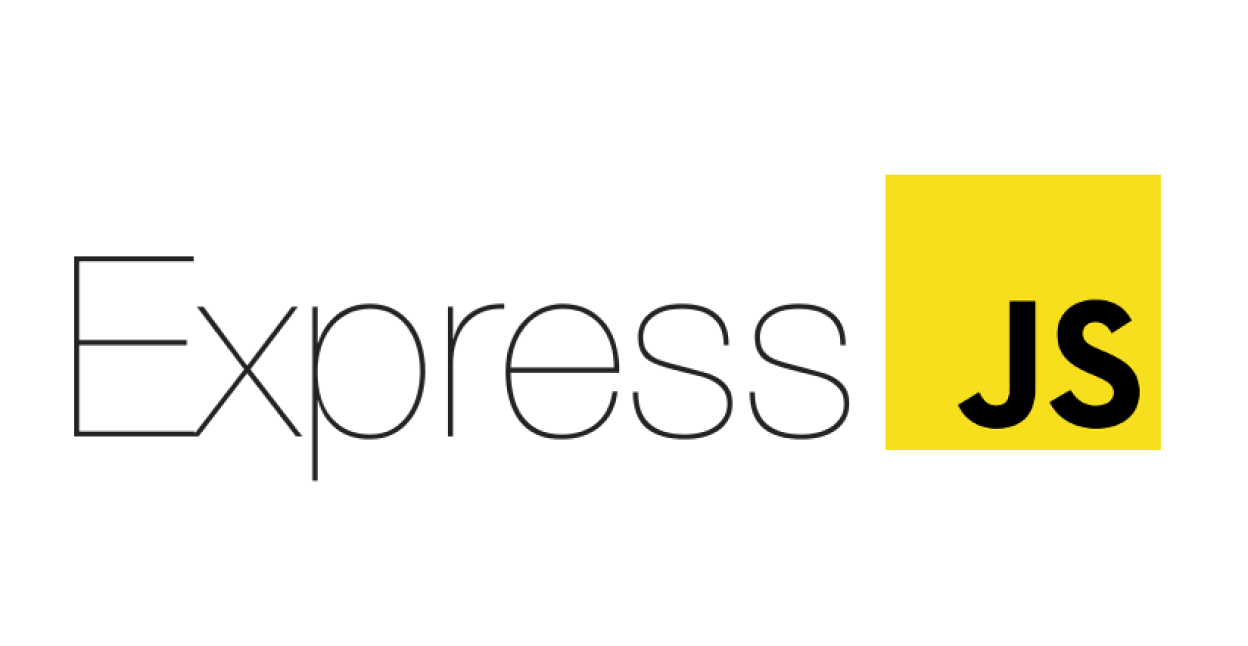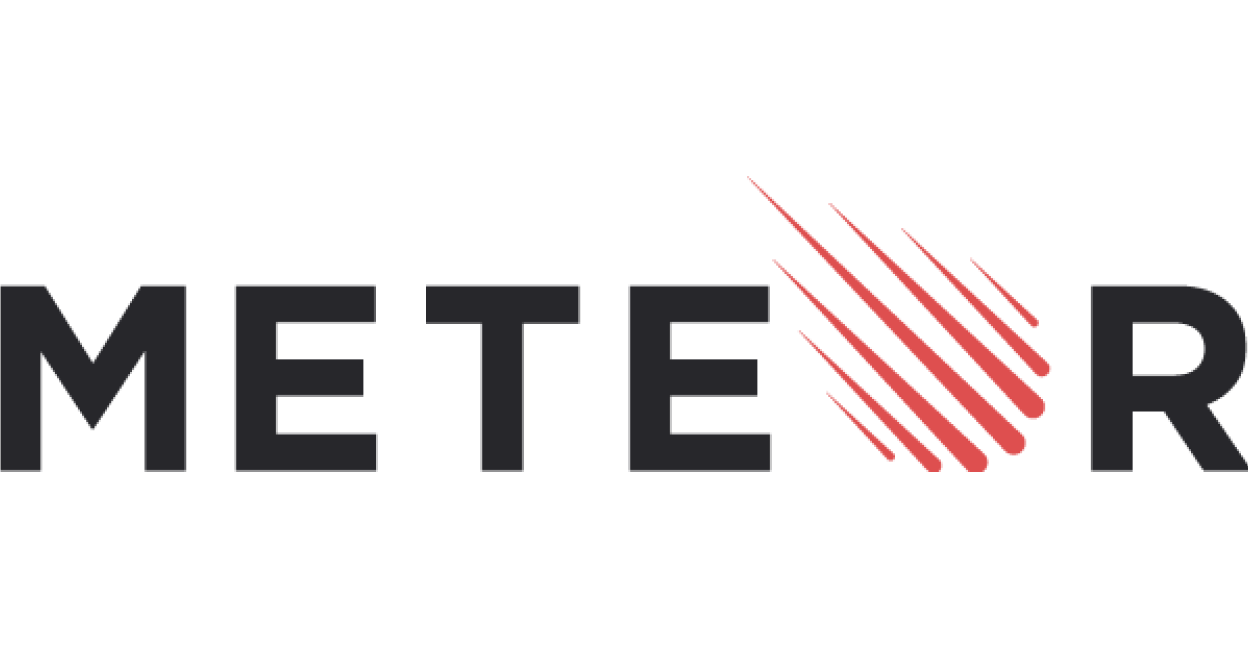Node.js is a popular choice among developers for building scalable, high-performance applications. Node.js has a vast library of modules, which makes it easy to develop complex applications. Node.js frameworks, on the other hand, make it easier for developers to build applications by providing a pre-defined structure and set of tools. This article will discuss What Node.js Frameworks are and how to choose the Best Node js Frameworks for 2023. You can also hire a node js developer to get your website going.
What are Node.js Frameworks?
Node.js frameworks help developers to build complex applications quickly and efficiently. Node.js frameworks come with built-in features such as routing, templating, authentication, and database connectivity, which makes development faster and easier.
There are many Node.js frameworks available, each with its strengths and weaknesses.
Best Node.js Frameworks for High-Performing Web Applications

These are some of the best node.js frameworks for API

Express.js is a minimalistic framework designed for building web applications and APIs. It is one of the Most Popular Node.js Frameworks widely used in the Node.js community. Express.js provides a range of built-in features such as routing, middleware, templating, and database connectivity. It is easy to learn and is a good choice for building small to medium-sized web applications.
When to use
Express.js is a great choice for building small to medium-sized web applications. It is easy to learn and provides a simple code structure. If you are looking for a lightweight and flexible Node.js framework that can handle HTTP requests and provide routing, middleware, and templating support, Express.js is the right choice.

Koa.js is a newer Node.js framework based on the same principles as Express.js but with a more modern approach. It provides a cleaner code structure and better error handling. Koa.js is lightweight and provides a range of built-in features such as routing, middleware, and error handling.
When to use
Koa.js is used for medium-sized web applications with a more modern approach. It provides a cleaner code structure and better error handling than Express.js. If you are looking for a lightweight and modern Node.js framework that can handle HTTP requests and provide routing and middleware support, then Koa.js is the right choice.

Hapi.js is a powerful Node.js framework that is designed for building APIs. It provides many built-in features like input validation, caching, and authentication. Hapi.js is easy to learn and provides a clean code structure. It is a good choice for building large-scale APIs.
When to use
Hapi.js is a great choice for building large-scale APIs. It provides many built-in features like input validation, caching, and authentication. If you are looking for a Powerful Node.js Framework that can handle large amounts of traffic and provide robust API support, then Hapi.js is the right choice.

Nest.js is built on top of Express.js and provides many features, such as dependency injection, middleware, and testing utilities. Nest.js is easy to learn and provides a clean code structure. It is a good choice for building large-scale server-side applications.
When to use
Nest.js is built on top of Express.js and provides many features, such as dependency injection, middleware, and testing utilities. If you are looking for a scalable and maintainable Node.js Framework that can handle complex business logic and provide robust server-side application support, then Nest.js is the right choice.

Meteor.js is a full-stack Node.js framework that is designed for building real-time applications. It provides many features, such as client-server data synchronization and built-in live reloading. Meteor.js is easy to learn and provides a clean code structure. It is good for building real-time applications such as chat and collaborative tools.
When to use
Meteor.js is great for building real-time applications such as chat and collaborative tools. It provides many features, such as client-server data synchronization and built-in live reloading. If you are looking for a Best Node.js Framework that can handle real-time communication and provide a simple code structure, then Meteor.js is the right choice.

Sails.js is a Node.js framework designed to build real-time applications and APIs. It provides a range of built-in features such as ORM, WebSocket support, and RESTful API support. Sails.js is easy to learn and provides a clean code structure. It is a good choice for building real-time applications and APIs.
When to use
Sails.js is a great choice for building real-time applications and APIs. It provides a range of built-in features such as ORM, WebSocket support, and RESTful API support. If you are looking for a Top Node.js Framework that can handle real-time communication and provide scalable API support, Sails.js is the right choice.

Adonis.js provides many features, such as MVC architecture, ORM, and WebSocket support. Adonis.js is easy to learn and provides a clean code structure. It is a good choice for building large-scale web applications.
When to use
Adonis.js is a great choice for building large-scale web applications. It provides many features like MVC architecture, ORM, and WebSocket support. If you are looking for a Node.js framework that can handle complex business logic and provide scalable web application support, then Adonis.js is the right choice.

How to Choose the Best Node js Frameworks for 2023?
Choosing the Best Node.js Frameworks for 2023 can be daunting, especially with many available options. However, there are some factors that you can consider to help you make the right choice.
- Project Requirements – The first factor you should consider when choosing a Node.js framework is your requirements. You should choose a framework that is well-suited to your project requirements. For example, if you are building a real-time application, you should consider using Meteor.js.
- Community Support – The second factor you should consider is community support. You should choose a framework that has an active community of developers. This ensures that the framework is regularly updated and maintained.
- Documentation – The third factor that you should consider is documentation. You should choose a framework that has good documentation. This makes it easier for you to learn and use the framework effectively.
- Performance – The fourth factor that you should consider is performance. You should choose a framework that is optimized for performance. This ensures that your application runs smoothly and efficiently.
- Learning Curve – The fifth factor is the learning curve. You should choose a framework that is easy to learn and use. This ensures that you can develop your application quickly and efficiently.
Benefits of Using Node.js Frameworks
There are many benefits to using Node.js frameworks, some of which include the following:
1. Faster Development Time: Node.js frameworks provide a set of pre-built modules and tools that can significantly speed up the Web App Development Process, allowing developers to focus on writing business logic rather than worrying about lower-level details.
2. Increased Scalability: Node.js is known for easily handling large-scale, real-time applications. Node.js frameworks provide additional features to enhance scalabilities, such as built-in clustering support and the ability to handle multiple requests concurrently.
3. Improved Performance: Node.js is built on the V8 JavaScript engine, known for its high-performance capabilities. Node.js frameworks take advantage of this performance, allowing developers to build fast and responsive applications.
4. Large Community and Ecosystem: Node.js has a large and active community of developers, which has resulted in a rich ecosystem of third-party libraries, tools, and modules. Node.js frameworks leverage this ecosystem, providing access to a wide range of resources that can make development faster and easier.
5. Cross-platform Support: Node.js frameworks can run on multiple platforms, including Linux, macOS, and Windows. This cross-platform support makes it easier for developers to build and deploy applications across different environments.
A Node.js framework can help Node.js Developers build faster, more scalable, and more performant applications while taking advantage of the rich ecosystem and community support.

What to Consider When Choosing a Node.js Framework?
Here are some factors to consider when choosing a Node.js framework:
- Project Requirements
The first thing to consider is your project requirements. What are you trying to build? Are you building a small web application or a large-scale enterprise application? Different Node.js frameworks are suited for different projects, and choosing one that fits your project requirements is important.
- Community Support
Node.js frameworks with a large and active community tend to have better support and documentation. This can be invaluable when encountering issues or needing help with your project. Choosing a Node.js framework with a strong community is important, as it can save you time and effort in the long run.
- Learning Curve
The learning curve of a Node.js framework is also an important factor to consider. Some frameworks are easier to learn than others, and if you are new to Node.js, it is important to choose a framework that is easy to learn and use. However, if you have experience with Node.js, you may be more comfortable with a framework that has a steeper learning curve.
- Performance
Performance is a critical factor when choosing a Node.js framework. Different frameworks have different performance levels, and it is important to choose a framework that can handle the traffic and load of your application. It is also important to consider the memory usage and CPU utilization of a framework, as these can impact the overall performance of your application.
- Documentation
Good documentation is essential when working with a Node.js framework. It can save you time and effort when developing your application and help you troubleshoot issues quickly. It is important to choose a Node.js framework with clear and comprehensive documentation.
- Ecosystem
The Node.js ecosystem is vast and varied, and different frameworks may have different levels of compatibility with different libraries and tools. It is important to consider the ecosystem when choosing a Node.js framework, as it can impact the ease and speed of development.
- Support for modern JavaScript features
JavaScript is constantly evolving and adding new features to the language. Some Node.js frameworks may have better support for modern JavaScript features, such as async/await or ES6 modules. If you are working with modern JavaScript features, choosing a framework that supports them is important.
Conclusion
Node.js frameworks provide a lot of benefits to developers. They make it easier to build complex applications quickly and efficiently. However, choosing the right Node.js framework can be a daunting task. When choosing a framework, you should consider project requirements, community support, documentation, performance, and learning curve. Considering these factors, you can choose the Best Node.js Frameworks for 2023 that is well-suited.





